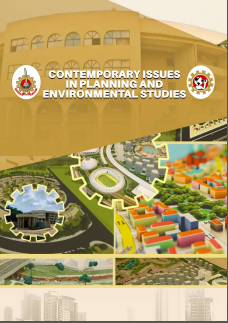Evaluation of Socioeconomic costs of Road Traffic Crashes on Victims in Federal Capital Territory Abuja, Nigeria
DOI:
https://doi.org/10.5281/zenodo.17053498Keywords:
Disease burden, Fatalities, Human Capital, Socioeconomic costs, Road Traffic Crashes, Willingness-To-PayAbstract
Road Traffic Crashes (RTCs) have become a significant public health crisis in Nigeria, with 60,155 crashes and 30,105 fatalities between 2011 and 2015. Survivors suffer enduring trauma and lifelong disabilities and become liabilities to their families and communities. The psychological burden is particularly pronounced in African societies with kinship systems. This study evaluates the socioeconomic costs of RTCs on victims and families in Abuja. Data was collected from six general hospitals in the Federal Capital Territory (FCT), focusing on hospitalized RTC victims and their relatives. A total of 121 victims and relatives sampled were determined from the average monthly admission of 178 RTC victims across the selected hospitals using Krejcie and Morgan's sampling formula. Descriptive statistics were utilised to analyse the respondents’ socioeconomic characteristics and impact, and both the Human Capital and Willingness-To-Pay (WTP) approaches were employed to quantify the economic burden of RTCs. The study reveals that male victims constitute 71% of the sample, with a predominant middle-age group of 36%. The socioeconomic impact is profound, particularly among lower-income households,
where limited financial resources hinder access to necessary medical care. The estimated socioeconomic costs of RTCs in the FCT
for 2022 was approximately N534.9 billion (around US$1.2 billion), primarily driven by productivity losses and long-term care costs. 58.7% of victims experienced severe impacts from crashes. The study shows the need for targeted policy reforms and enhanced support systems to alleviate the financial and psychological impacts on RTC victims and households. The findings are vital for informing interventions and improving road safety measures across Nigeria.
Downloads
Published
Versions
- 2025-09-04 (2)
- 2025-07-22 (1)
How to Cite
Issue
Section
License
Copyright (c) 2025 Department of Urban and Regional Planning, LAUTECH

This work is licensed under a Creative Commons Attribution 4.0 International License.





